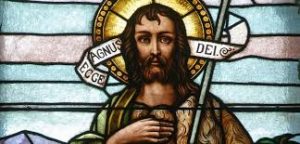HOMILY ADVENT WEEK 03 04 – Year II
Greater than John the Baptist
(Is 54:1-10; Ps 30; Lk 7:24-30)
*************************************
Today’s readings invite us to place our faith in Jesus as the Messiah, and to strive to be even the least in the Kingdom of God.
The first reading from Isaiah is a poetic reminder that God is compassionate and loving, faithful to God’s covenant relationship with God’s people, reaching out especially to the poor, marginalized, overlooked and forgotten in our society.
The Psalm adds to that message, reminding us that God turns all things to the good for those who love God.
 In the gospel we see how that “good” works. John the Baptist is the son of a priest and should have been enjoying the good life in the Temple, but instead he chose to live in the wilderness and in poverty, taking the side of the poor, and preaching a message of repentance and change to the rich.
In the gospel we see how that “good” works. John the Baptist is the son of a priest and should have been enjoying the good life in the Temple, but instead he chose to live in the wilderness and in poverty, taking the side of the poor, and preaching a message of repentance and change to the rich.
During one pilgrimage to the Holy Land, we visited the location of the Qumran scrolls, read about the life of the Essene community, and learned that John the Baptist might have been a member of that community, protesting against the injustice and excesses of the corrupt religious system in Jerusalem.
The message for us is to accept our own brokenness and poverty, believe in both John the Baptist as forerunner of Jesus, and in Jesus as the Messiah who will turn all things to the good for us – even time in a Remand Center, where I used to go for prayer services before the current pandemic.
God is constant and firm in his love for us. God’s attributes, will and promises do not change. If God says something, God will act on it, and if God declares something, God will bring it about. Not always in the way we expect, and not always when we think it should happen. But it will happen. And God has promised that God’s love will never leave us.
This all-powerful, unchanging God wants to be the source of our peace. God wants to calm our hearts when, like Israel, we face uncertainty and suffering. When our sins feel too great for God to forgive, God wants to remind us of God’s omnipotent and immutable love. When we are tempted to embrace the weak, deceptive love of this world, God longs to gather us to God’s self in great tenderness. This is the God whose love will never leave us!
The Eucharist is an invitation to faith in Jesus as the Bread of Life, and an experience of God turning everything to the good for us – through forgiveness and healing.
So let us place our faith in Jesus, trust in him, and open ourselves up to receiving his forgiveness and healing.



